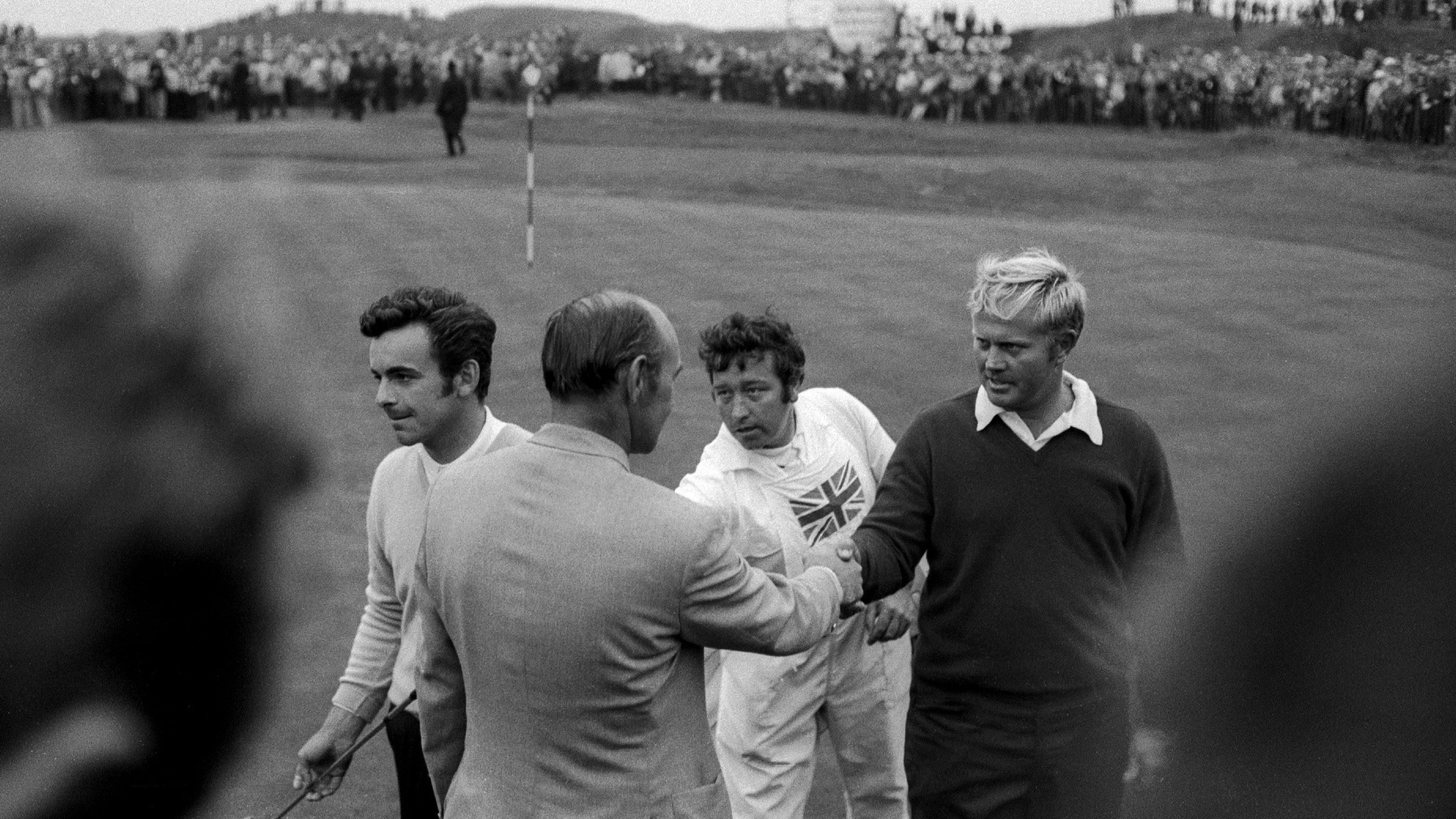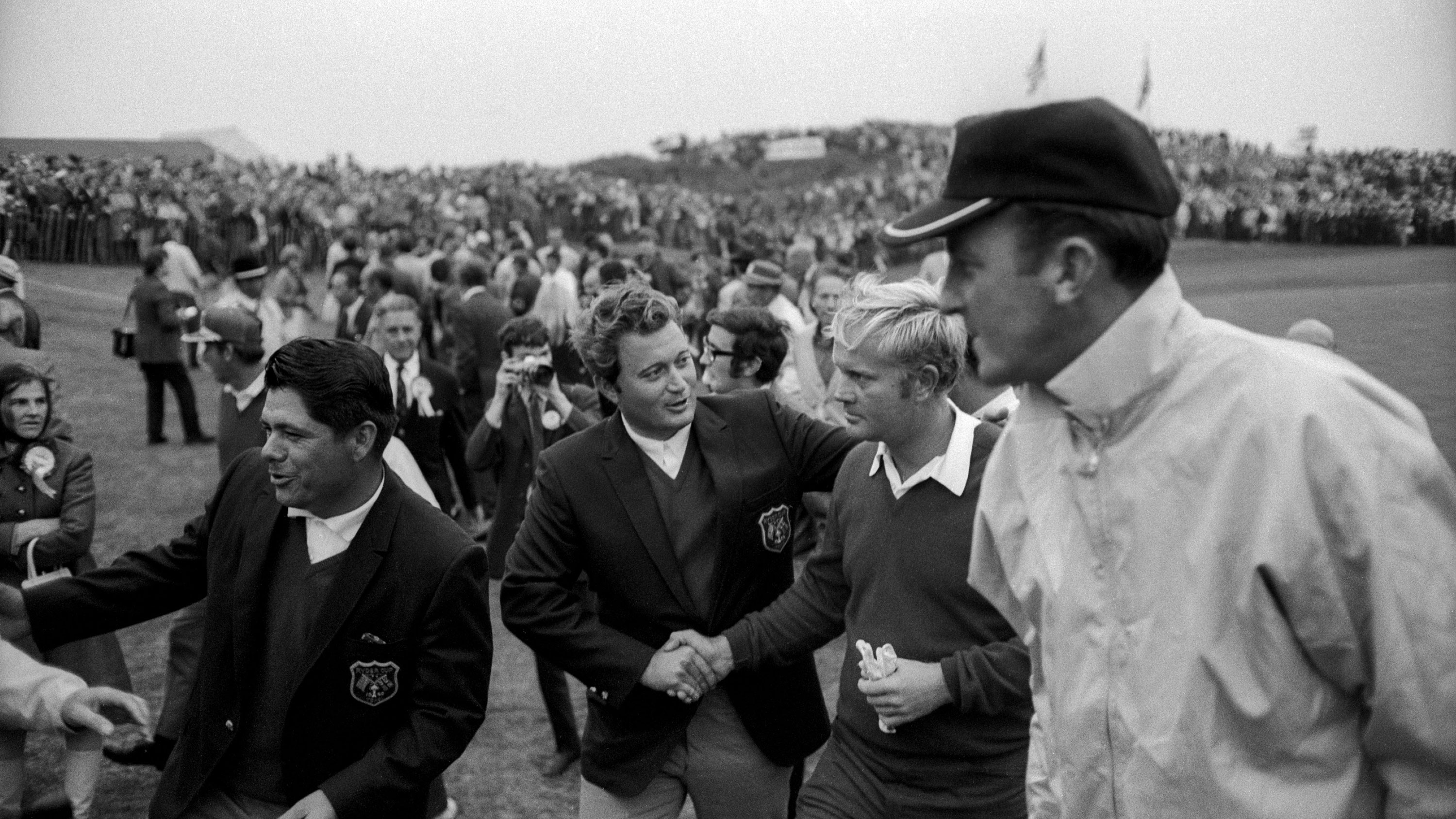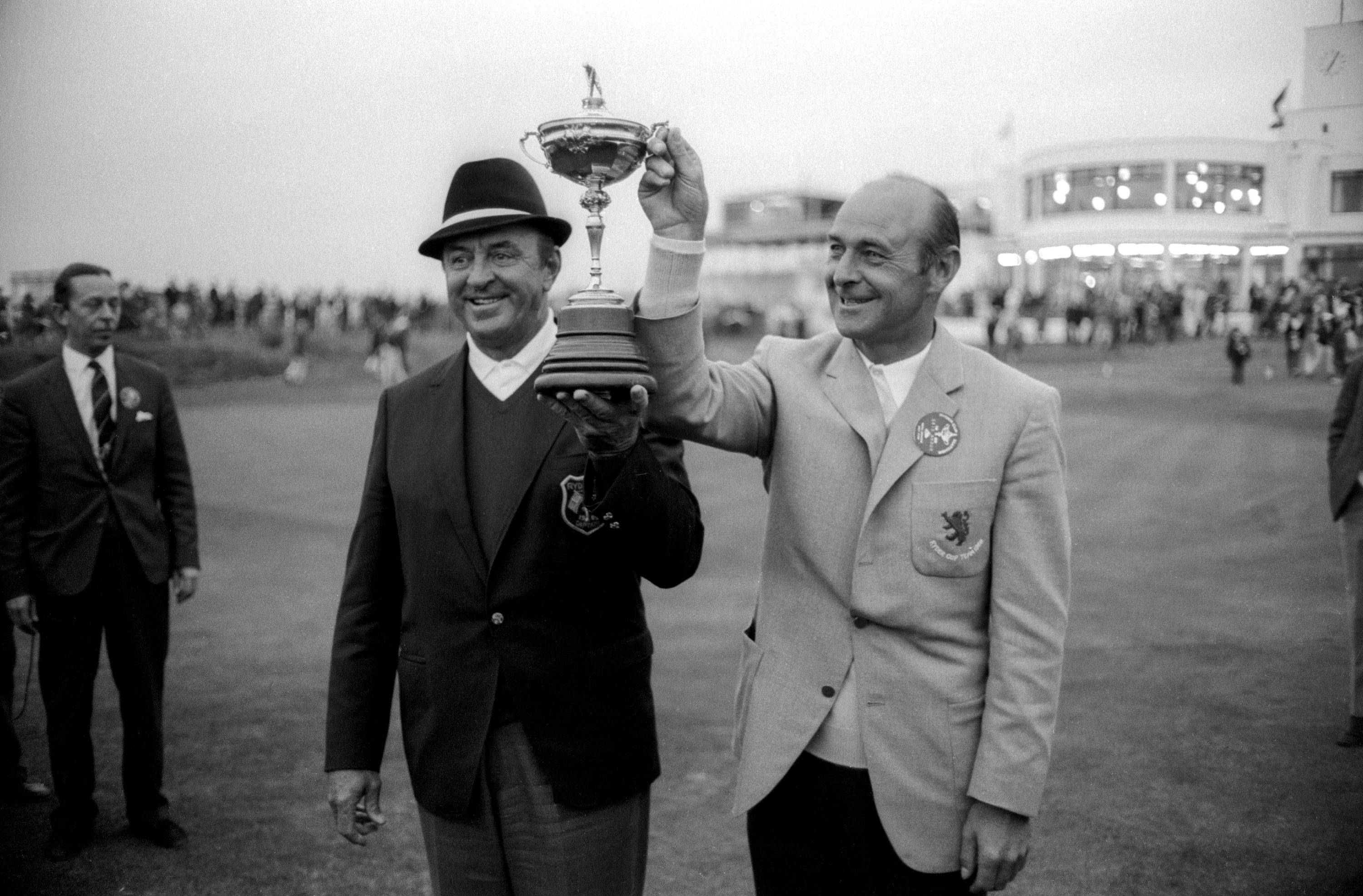Was 'The Concession' A Great Act Of Sportsmanship Or A Crazy Thing To Do In A Ryder Cup?
When Jack Nicklaus gave Tony Jacklin a putt to tie the 1969 Ryder Cup, did he do the right thing, or was it a competitive mistake?


Subscribe to the Golf Monthly newsletter to stay up to date with all the latest tour news, equipment news, reviews, head-to-heads and buyer’s guides from our team of experienced experts.
You are now subscribed
Your newsletter sign-up was successful
Want to add more newsletters?

Delivered daily
Daily Newsletter
Sign up for all the latest tour news, gear reviews, head-to-heads and buyer’s guides plus features, tips from our top 50 coaches and rules advice from our expert team.

Once a week
Kick Point
Sign up to our free Kick Point newsletter, filled with the latest gear reviews and expert advice as well as the best deals we spot each week.

Once a week
Women's Golf Edit
Sign up to our free newsletter, filled with news, features, tips and best buys surrounding the world of women’s golf. If you’re a female golfer, you won’t want to miss out!
Tony Jacklin gave British golf a significant boost by winning The Open Championship at Royal Lytham in 1969 and his superb form on Lancashire’s links continued in that year’s Ryder Cup at Royal Birkdale.
The Englishman had dropped just half a point as the matches moved into the final set of singles.
GB&I held a 13-11 advantage, but their lead was eroded through the afternoon and it became increasingly apparent the contest would go to the wire, perhaps the closing match between Jacklin and Jack Nicklaus.
Quirks of the USPGA’s selection policy meant that Nicklaus was a seven-time Major Champion by the time he played in his first Ryder Cup at Royal Birkdale, but the fate of that event would be decided by an iconic gesture from the Golden Bear.
Jacklin holed a lengthy putt for eagle on the 17th to draw level and, with the overall score at 15.5 each, the whole Cup rested on the last hole.
Both men found the green in two and Jacklin putted first, ending two feet short. The American raced his birdie effort past before calmly holing for par.
Then, Nicklaus conceded Jacklin’s putt meaning a halved game and a tied Ryder Cup.
Subscribe to the Golf Monthly newsletter to stay up to date with all the latest tour news, equipment news, reviews, head-to-heads and buyer’s guides from our team of experienced experts.
It’s gone down as one of the most memorable Ryder Cup moments and it’s generally regarded as an act of supreme sportsmanship.
It was undoubtedly done with good will, but was it a crazy thing to do? Let’s look at both sides of the argument.
Great Sportsmanship

Ray Floyd shakes Jack Nicklaus' hand at the 1969 Ryder Cup
After picking up Jacklin’s marker, Nicklaus said to the Englishman something along the lines of, “I knew you wouldn’t miss, but I didn’t want to give you the opportunity to.”
Both men have always felt that the gesture was in the spirit of the event and both are proud of being part of that Ryder Cup moment. There’s even been a golf course named after it – The Concession Club in Florida.
There are a few reasons why it was great sportsmanship.
Firstly, it was a tremendous singles match and a half was the right result for Nicklaus and Jacklin. The Englishman had played so well all through the event and Nicklaus did not want that to be overshadowed by one short putt on the final green.
Secondly, the rest of the Ryder Cup had been fiery to say the least, so to cap it with an act of sportsmanship was a great way to right a few wrongs that had occurred earlier in the event.
Early on, GB&I captain Eric Brown had to retract an order for his players not to search for the Americans’ balls in the rough.
He would later say he was fearful of them incurring a penalty if they did so and stood on a ball. A sightly unbelievable story.
Ken Still and Brian Hugget almost came to blows during a four-ball match and Lee Trevino had to intervene to call a penalty on Still when a ball rebounded and hit him in a bunker… Still didn’t fess up, or perhaps didn’t notice.
Thirdly, many felt GB&I deserved to win the Cup outright and that the Americans had enjoyed some good fortune to even have a chance to win it themselves.
If the USA had claimed victory via a short missed putt from GB’s talisman, it would have been an injustice. It would have devastated the home fans and been highly damaging for Jacklin.
The 1969 Ryder Cup is remembered for the concession and golf’s rich history of integrity and sportsmanship would be lesser if it hadn’t occurred.
Crazy Thing To Do

Sam Snead and Eric Brown with the Ryder Cup
American captain Sam Snead was irritated with Nicklaus for gifting the half to Jacklin and it appears to have been the case that some of the other players were, too.
“When it happened, all the boys thought it was ridiculous to give him that putt. We went over there to win, not to be good ol’ boys,” he later said.
The Ryder Cup is such a huge event that it does seems ludicrous that someone wouldn’t take any chance to win it outright.
The fact Nicklaus said to Jacklin that he didn’t want to give him the opportunity to miss the putt means he obviously felt it was a putt that could be missed.
The pressure would have been immense and it’s quite possible that Jacklin could have felt it and made a poor stroke.
Just one year later, Doug Sanders did just that on the final green at St Andrews and went on to lose The Open to none other than Nicklaus.
The team of 12 Americans had fought hard to qualify to play in the Cup. They had travelled over to the UK to practice and then play in the competition. They had battled through the event itself to earn points and have a chance to win outright.
Then, one player, albeit the world’s best player, made an arbitrary decision to remove the chance for them to win outright. No wonder some of them were furious.
The history books will always show that match and the Cup was tied, although the USA did retain, but it could have been different.
The USA might have one more outright victory in those history books. Perhaps there should have been an opportunity for that to happen.
In my opinion, Jack did the right thing and I think of 'The Concession' as one of the great moments in golf’s history.
But I can understand people who would have sympathy for Sam Snead and the other USA players. What do you think? Leave a comment if you have a view!
Jack Nicklaus quiz

Fergus is Golf Monthly's resident expert on the history of the game and has written extensively on that subject. He has also worked with Golf Monthly to produce a podcast series. Called 18 Majors: The Golf History Show it offers new and in-depth perspectives on some of the most important moments in golf's long history. You can find all the details about it here.
He is a golf obsessive and 1-handicapper. Growing up in the North East of Scotland, golf runs through his veins and his passion for the sport was bolstered during his time at St Andrews university studying history. He went on to earn a post graduate diploma from the London School of Journalism. Fergus has worked for Golf Monthly since 2004 and has written two books on the game; "Great Golf Debates" together with Jezz Ellwood of Golf Monthly and the history section of "The Ultimate Golf Book" together with Neil Tappin , also of Golf Monthly.
Fergus once shanked a ball from just over Granny Clark's Wynd on the 18th of the Old Course that struck the St Andrews Golf Club and rebounded into the Valley of Sin, from where he saved par. Who says there's no golfing god?
You must confirm your public display name before commenting
Please logout and then login again, you will then be prompted to enter your display name.